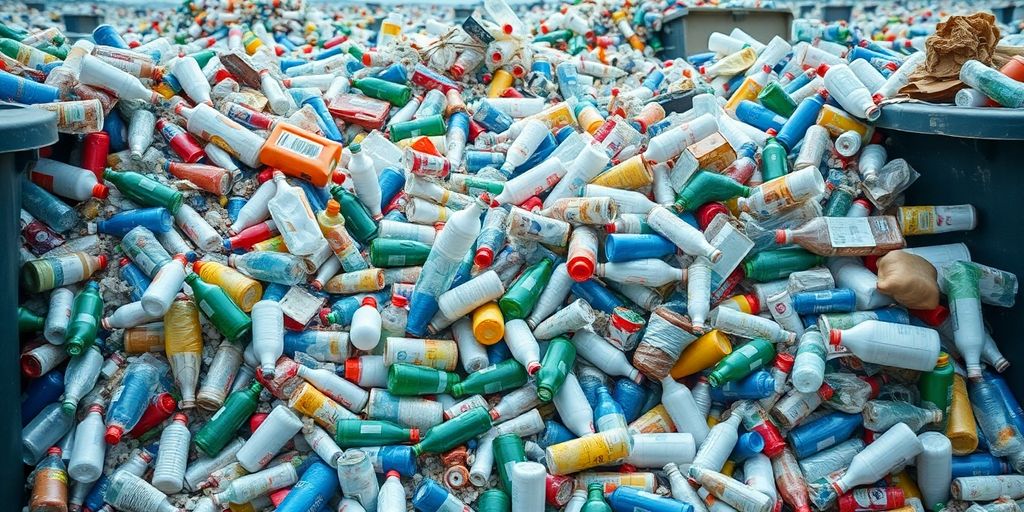
UK Drowning in Plastic: Exports Soar as Recycling Promises Unravel
Share
UK's Plastic Waste Crisis Deepens Amidst Rising Exports and Recycling Myths
The UK is facing a significant and escalating plastic waste crisis, with alarming increases in waste exports and persistent issues with recycling effectiveness. Recent data reveals a worrying trend of UK plastic waste being shipped overseas, while domestic recycling efforts fall short of tackling the sheer volume produced.
The Growing Burden of Waste Exports
New analysis shows a stark 60% increase in UK plastic waste exports to Turkey between 2022 and 2023. The UK has become the largest exporter of waste to Turkey, sending over 140,000 tonnes in 2023 alone. This surge reverses a previous decline and highlights a continued reliance on other nations to manage the UK's plastic output. Campaigners argue this practice shifts the burden to developing countries, which often lack the infrastructure to handle it safely, leading to environmental contamination.
The Unravelling Myth of Plastic Recycling
Despite consumer desire for solutions, the reality of plastic recycling in the UK is proving to be less effective than often portrayed. Investigations into supermarket take-back schemes suggest that a significant portion of collected soft plastics, intended for recycling, ends up being incinerated. Overall, only about 17% of the UK's plastic waste is actually recycled domestically. The rest is either incinerated (58%), exported (14%), or sent to landfill (11%).
Key Takeaways:
- UK plastic waste exports to Turkey have increased by 60% between 2022 and 2023.
- Only 17% of the UK's plastic waste is recycled domestically.
- 58% of plastic waste is incinerated, a significant increase.
- Food and drink packaging constitutes the vast majority of household plastic waste.
Household Plastic Waste: A Persistent Problem
The Big Plastic Count, the UK's largest survey of household plastic waste, has revealed that UK households discard an estimated 1.7 billion pieces of plastic packaging weekly, totalling around 90 billion pieces annually. Snack and fruit/vegetable packaging remain the most common items. This consistent figure, despite public outcry and awareness, indicates a lack of progress from supermarkets and brands in reducing packaging.
Calls for Global and National Action
In light of these findings, environmental groups are urging for stronger government action. Key demands include:
- A legally binding global target to cut plastic production by at least 75% by 2040.
- An immediate ban on all plastic waste exports by 2027.
- The implementation of deposit return schemes and extended producer responsibility.
- An end to approvals for new incineration facilities.
These calls are being amplified in the context of international negotiations for a Global Plastics Treaty, where the UK is urged to champion ambitious measures to curb plastic production at its source.
Sources
- “We can no longer bear this load” UK waste exports to Turkey on the rise again, Greenpeace UK.
- The myth of plastic recycling is finally unravelling, The Telegraph.
- UK’s Largest Household Plastic Waste Survey Returns Following Government Inaction, Greenpeace UK.
- We need to talk about plastic: five everyday items choking the planet | Plastics, The Guardian.
-
The UK's Largest Plastic Waste Survey Reveals 1.7 Billion Pieces of Plastic Packaging Still Being Thrown Away
by Households Weekly, Greenpeace UK.
